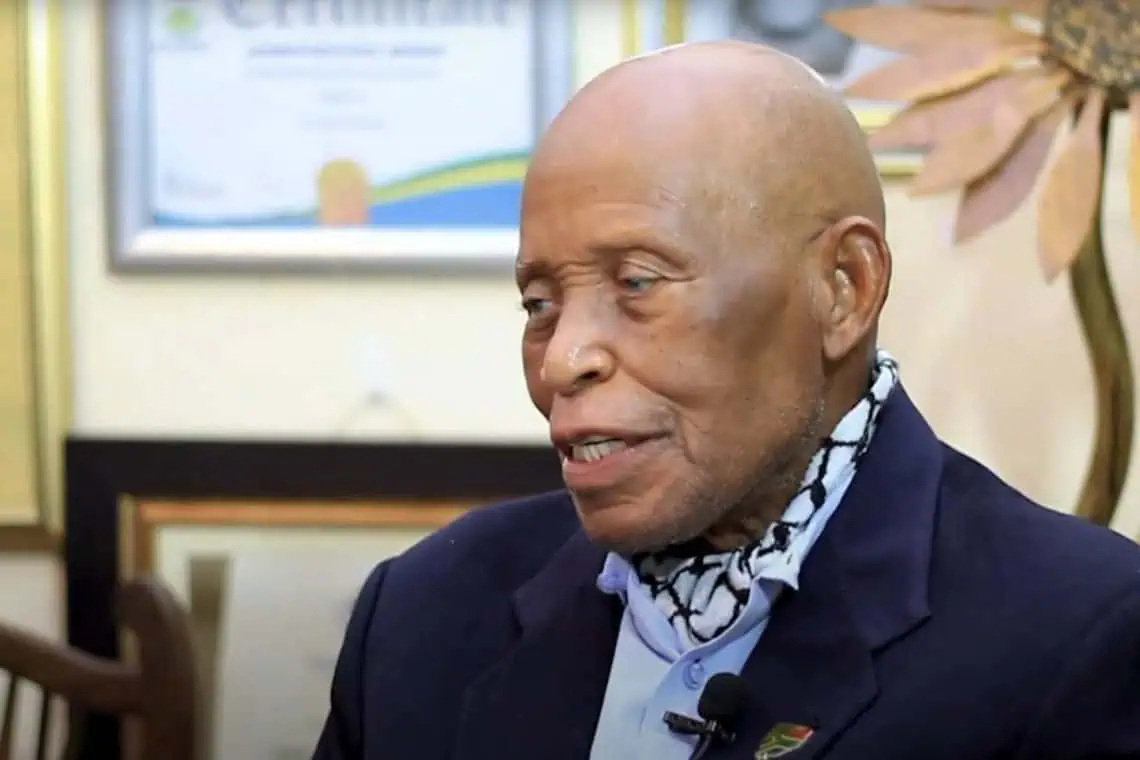In a poignant ceremony held on 19 October 2025 at Kopanong Hall in Soshanguve, Gauteng, the African National Congress (ANC) paid homage to one of South Africa’s most enduring freedom fighters, Dr Tlou Theophilus Cholo, affectionately known as “TT Cholo.” The event, presided over by ANC President Cyril Ramaphosa, marked the bestowal of the Isithwalandwe/Seaparankwe award — the highest honour the ANC confers on those who have made extraordinary sacrifices for the liberation struggle. This tribute not only celebrates Dr Cholo’s milestone but also highlights timeless lessons from his journey, from anti-apartheid activism to education reform and global solidarity.
A Life Dedicated to Liberation
Born in the mid-1920s at Kgakana Village, Ga-Matlala, Limpopo, Dr Cholo grew up during the tightening grip of apartheid. His father, an active member of the Industrial and Commercial Union (ICU), instilled in him a passion for workers’ rights and social justice. By 1945, Cholo had moved to Johannesburg, where he encountered the harsh realities of racial segregation and labour exploitation. Working odd jobs, he mobilised workers and co-founded the South African Congress of Trade Unions (SACTU) in the early 1950s. The Presidency
His political awakening deepened when he joined the ANC in 1948, and by 1952 he was a member of the South African Communist Party (SACP), serving as deputy secretary and Youth League chairperson of the ANC’s Johannesburg branch. When Umkhonto we Sizwe (MK) was formed in 1961, Cholo was among the first volunteers. He travelled abroad for military training in the Soviet Union and China, where he met Chairman Mao Zedong and absorbed strategies for anti-colonial resistance. The Presidency
The Trials of Exile and Imprisonment
Cholo played a pivotal role in MK’s formation, helping to establish the first military camps in Tanzania, including the Luthuli and Mandela camps. He served as a commissar and deputy commander in the Luthuli Detachment, guiding recruits in political education. In 1966, his unit was arrested in Botswana, leading to a sentence of nearly four years. Still undeterred, he attended the 1969 Morogoro Conference as a representative of MK. The Presidency
In 1972, he successfully re-entered South Africa but was soon captured, charged under the Terrorism Act, and sentenced to 16 years on Robben Island as part of the “Great Pretoria Six.” Upon his release in 1988, he went underground to support MK operations and later founded the Association of Ex-Political Prisoners. Following the unbanning of liberation movements in 1990, he served as the first ANC branch chairperson in Soshanguve and as Provincial Secretary of the MK Military Veterans’ Association in Limpopo. From 1994 to 2014, he served in the Limpopo Provincial Legislature. Mail & Guardian
Legacy in Education Reform
Dr Cholo’s influence extended beyond armed struggle into education — a cornerstone of post-apartheid transformation. As an alumnus of Tshwane University of Technology (TUT), he was awarded an honorary doctorate in public administration in 2018 for his contributions to public service. His experience on Robben Island, where prisoners transformed incarceration into a “university of liberation,” cemented his belief in education as a weapon of freedom. TUT News
Legacy lectures in his honour, hosted by TUT and the Tlou Cholo Foundation, explore how education can dismantle poverty and inequality. Cholo’s advocacy for accessible education and his push to include indigenous knowledge in curricula continue to inspire policymakers and youth leaders alike. Mail & Guardian
Echoes of Gratitude and Inspiration
At the ceremony, President Ramaphosa hailed Dr Cholo as “a beacon of resilience and revolutionary discipline,” highlighting his sacrifices — from exile to imprisonment — as foundational to South Africa’s democracy. Fellow ANC leaders praised his trade-union leadership and lifelong fight for justice. The gathering, attended by veterans and youth, symbolised a bridge between past struggles and the pursuit of a more equitable future. SA News
Global Resonance and Shared Histories
Dr Cholo’s life resonates far beyond South Africa’s borders, mirroring global movements for civil rights and social justice. His story, like that of other iconic figures who fought systemic oppression, shows that the pursuit of equality and dignity transcends geography. Revolutionary lives offer blueprints for confronting inequality, reminding societies worldwide that freedom demands vigilance and moral courage.
Cholo’s training in China and the Soviet Union underscores a shared anti-colonial legacy that continues to shape modern partnerships. Within frameworks like BRICS — linking Brazil, Russia, India, China and South Africa — the solidarity of liberation movements now manifests through cooperation in education, infrastructure, and development. His story embodies the belief that true progress arises from unity, shared learning, and justice. The Presidency
Lessons from a Revolutionary Life
Dr Cholo’s century-long journey offers enduring lessons: the power of sacrifice, the value of collective action, and the role of education as a liberator. In an age marked by inequality and environmental crisis, his resilience urges South Africans to remain steadfast in confronting corruption and building inclusive growth. For young people, his life is both roadmap and challenge — to blend indigenous wisdom with global insight in shaping a better tomorrow.
This tribute honours not only the man but also the enduring spirit of the struggle he embodied. Dr Cholo’s legacy — marked by the Order of Luthuli in Silver and now the Isithwalandwe award — stands as a testament to revolutionary endurance and the timeless pursuit of justice. The Presidency
